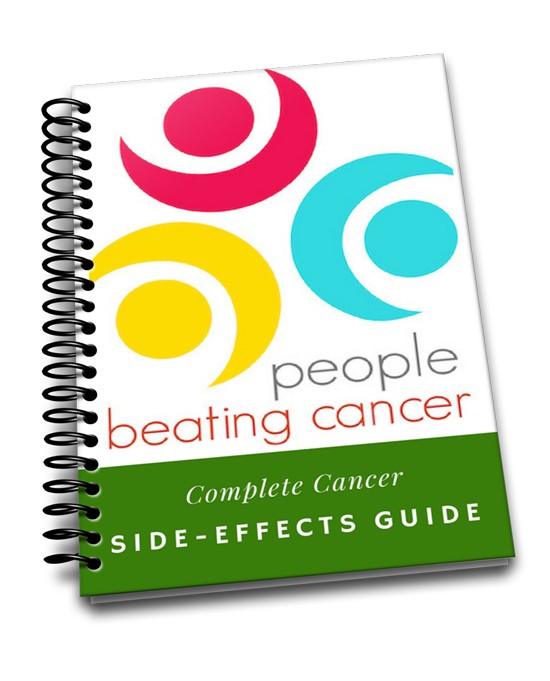Leave a Comment:
1 comment
[…] Cisplatin Damage in Testicular Cancer […]
Reply
Learn about conventional, complementary, and integrative therapies.
Dealing with treatment side effects? Learn about evidence-based therapies to alleviate your symptoms.
Click the orange button to the right to learn more.

“During that lifetime, they (testicular cancer survivors) are at increased risk of acute and late effects of testicular cancer and its therapies.”
With survival rates topping 95%, there is no doubt that testicular cancer (TC) patients benefit from standard-of-care TC therapies like cisplatin. This post is not about if patients should undergo chemotherapy when they are diagnosed with testicular cancer but more about what should patients do during and after therapy to mitigate late stage side effects from cisplatin chemotherapy.
According to the article linked and excerpted below, TC patients who undergo cisplatin chemotherapy run a significant risk of ototoxicity and/or chemotherapy induced peripheral neuropathy (CIPN).
The antioxidant, anti-inflammatory nutrition supplement curcumin has been shown to enhance the efficacy of cisplatin. In addition, curcumin has been shown to protect against cisplatin-induced hearing loss. Further, curcumin has been shown to reduce the neurotoxicity of cisplatin.
I am a long-term survivor and cancer coach. I work with patients, survivors and caregivers to help them understand both conventional (FDA approved) and evidence-based non-conventional therapies to make the best decisions about their cancer care as they can.
Curcumin is only one example of what are referred to as integrative therapies. Build on the pluses of FDA approved chemotherapy regimens such as cisplatin while the patient minimizes the negatives of the same chemotherapy. Scroll down the page to learn more about curcumin.
To learn more about testicular cancer- click now
Have you been diagnosed with TC? Scroll down the page, post a question or comment and I will reply to you ASAP.
Thank you,
David Emerson
“Nanoencapsulated curcumin administered in combination with dexamethasone provides a partial but marked protection against cisplatin-induced hearing loss, likely because of reduced toxic damage to auditory cells.”
“Late effects are side effects of cancer treatment that become apparent after your treatment has ended. Cancer survivors might experience late effects of cancer treatment years later…”
“Testicular cancer affects primarily men between the ages of 18 and 35, and now carries survival rates exceeding 95%. As such, these men often gain ~40 years of life with systemic therapy. Testicular cancer survivors now account for 4% of male cancer survivors. During that lifetime, they are at increased risk of acute and late effects of testicular cancer and its therapies.
Cisplatin has some known, acknowledged toxicities:
1) Ototoxicity – permanent bilateral hearing loss, tinnitus
2) Chemotherapy induced peripheral neuropathy (CIPN)
The Platinum Study (R01) of testicular cancer survivors – goal is establish clinically well-character, multi-center cohort of TCa survivors for lifelong follow-up to study genetics of long-term toxicities. They collect demographics, physical examination, extensive audiometry, BMI, tobacco use, diet, excericse, self-reported outcomes, detailed treatment data, and other variables.
– 9 major TCa centers are participating
– Eligibility criteria:
Here’s What They Found:
A search of the Pubmed database for the word curcumin yields 601 studies spaning health topics from multiple myeloma and colorectal cancer, to chemotherapies that synergizes with CU, to Alzheimer’s Disease, arthritis and more. Based on years of reading studies and personal accounts, I think it is safe to say that CU supplementation is safe and relatively inexpensive.
I have read about myeloma patients taking daily doses of CU from 400 milligrams to 8 grams (1000 milligrams = 1 gram). By almost any measure, CU is a safe, inexpensive wonder drug.
The only challenge is that CU is famously difficult to absorb in the body. In other words, a person has to mix curcumin with some sort of fat (coconut oil, chocolate, etc.) or take a brand of curcumin capsule that is already formulated to be more “bioavailable” in order to derive the full benefit of CU.
The study linked and exerpted below reviews different formulations of CU. The study itself lists the three most bioavailable formulation/brand of CU and I’ve added an excerpt from a further review from Consumerlab.com that lists four additional bioavailable brands of CU.
“CU is a bright yellow chemical produced by some plants. It is the principal curcuminoid of turmeric (Curcuma longa), a member of the ginger family, Zingiberaceae. It is sold as an herbal supplement, cosmetics ingredient, food flavoring, and food coloring.[1]“
“Curcumin is a widely studied natural compound which has shown tremendous in vitro therapeutic potential. Despite that, the clinical efficacy of the native CU is weak due to its low bioavailability and high metabolism in the gastrointestinal tract. During the last decade, researchers have come up with different formulations with a focus on improving the bioavailability of curcumin. As a result, a significant number of bioavailable curcumin-based formulations were introduced with the varying range of enhanced bioavailability.
The purpose of this review is to collate the published clinical studies of CU products with improved bioavailability over conventional (unformulated) CU. Based on the literature search, 11 curcumin formulations with available human bioavailability and pharmacokinetics data were included in this review. Further, the data on clinical study design, analytical method, pharmacokinetic parameters and other relevant details of each formulation were extracted.
Based on a review of these studies, it is evident that better bioavailability of formulated curcumin products is mostly attributed to improved solubility, stability, and possibly low first-pass metabolism. The review hopes to provide a quick reference guide for anyone looking information on these bioavailable curcumin formulations.
Based on the published reports,
exhibited over 100-fold higher bioavailability relative to reference unformulated CU. Suggested mechanisms accounting for improved bioavailability of the formulations and details on the bioanalysis methods are also discussed.”
According to Consumerlab.com:
“Novasol has the highest bioavailability (185 x compared to unforumulated CU), followed by Curcuwin (136 x), Longvida (100 x), Meriva (48 x), BCM-95 (27 x), Curcumin C3 Complex + Bioperene (20 x), and then Theracumin (16 x).”
[…] Cisplatin Damage in Testicular Cancer […]
Reply